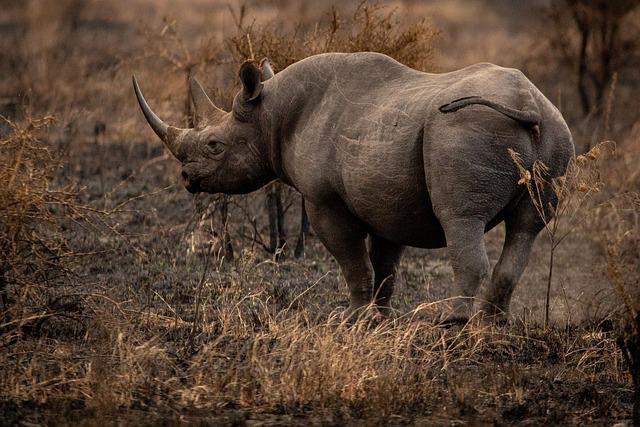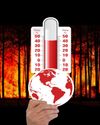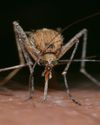
That means our nature is in great danger. The reason behind this is man. Human occupation, pollution and global warming on the living space of animals.
Scientists from all over the world have decided on 19 December 2022 that they will go ahead and do more work for the protection of nature and animals. Because what did not happen in the last one crore years, is happening now. At present, more than one million species are on the verge of extinction.
Because when the species of an animal ends, then its genes, behavior, functions and their relationship with plants end. The death of an animal also affects the environment around it. Because any living being takes millions and billions of years to develop. It only takes a few years to finish.
Because many animals are responsible for pollination of plants. Help in increasing the nutrients in the soil. They help in fertilizing the forests. Also controls the In the last five centuries i.e. 500 years, hundreds of rare species have been extinct from the world. By the end of the year 1600, the Dodo birds which did not fly from Mauritius were over.
Humans are behind the extinction of most of the living beings. Like there was a subspecies of zebra in Africa, whose name was Quagga. By the end of the 19th century, humans hunted them so much that they became extinct. Apart from this, pollution, destroying houses or destroying forests is a big reason. Prey and greed cause death The world's only Rabb's Fringe-Limbed tree frog Toughie died in 2016. It was kept in the Atlanta Botanical Garden. But he did not have any frog of his species to breed. Now his generation is not on earth. The story of Passenger Pigeon i.e. Pigeon Martha is also similar. It died in 1914 at the Cincinnati Zoo. In 1850 there were millions of passenger pigeons. But Martha was the last of her kind.
This story is from the {{IssueName}} edition of {{MagazineName}}.
Start your 7-day Magzter GOLD free trial to access thousands of curated premium stories, and 9,000+ magazines and newspapers.
Already a subscriber ? Sign In
This story is from the {{IssueName}} edition of {{MagazineName}}.
Start your 7-day Magzter GOLD free trial to access thousands of curated premium stories, and 9,000+ magazines and newspapers.
Already a subscriber? Sign In

Building world's 1st pyramid
In a preprint study published this summer, researchers proposed that ancient Egyptians built the world's first pyramid the 4,700-year-old Step Pyramid of Djoser, which sits on Egypt's Saqqara plateau using a \"modern hydraulic system\" powered by a long-gone branch of the Nile River.

Climate change arms the world, ovarian cancer pulls the trigger.It's time we disarm them both
Climate change, driven by human activities, leads to environmental changes such as rising temperatures, altered weather patterns, and increased pollution.

Climate Change Added 18 mph to Hurricane Wind Speeds over Past 5 Years
High ocean temperatures caused by global warming boosted maximum intensities for most storms between 2019 and 2023, as well as for every 2024 hurricane.

How Indian Vulture Decline Led to 500,000 Deaths in 5 Years
Once a common sight across India, vultures were abundant scavengers, often seen circling landfills in search of carcasses.

Understanding Monkeypox: Insights and Implications
Monkeypox, a viral zoonotic disease, has gained significant attention in recent years due to its re-emergence and sporadic outbreaks globally.

AI predicts that most of the world will see temperatures rise to 3°C much faster than previously expected
Three leading climate scientists have combined insights from 10 global climate models and, with the help of artificial intelligence (AI), conclude that regional warming thresholds are likely to be reached faster than previously estimated.

Infrared Radiation: A New Player In Mosquito Host-Seeking
The sound of mosquitoes is all around us when the sun sets and the air gets warm and sweltering.

Fish Oil May Benefit to Cure Alzheimer's, disorder: new findings
The benefits of fish and fish oil consumption are well-known in medical science as fish is considered a precious food resource that provides sufficient nutrition to humans.

A new class of antivirals could help prevent future pandemics
The arrival of Paxlovid in December 2021 marked another turning point in the COVID-19 pandemic an effective antiviral that has since successfully treated millions.

Turning carbon emissions into methane fuel
Chemists have developed a novel way to capture and convert carbon dioxide into methane, suggesting that future gas emissions could be converted into an alternative fuel using electricity from renewable sources. Carbon dioxide (CO2) is a greenhouse gas that accounts for a large part of Earth's warming climate, and is produced by power plants, factories and various forms of transportation.
